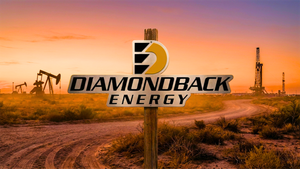J.B. Hunt Transport Services, Inc. (NASDAQ: JBHT), one of the largest supply chain solutions providers in North America, today announced a new goal to reduce its carbon emission intensity 32% by 2034 (baseline 2019), advancing the company’s sustainability vision of moving the freight industry towards a low-carbon future.
“Our roadmap to achieving this aspirational goal will help J.B. Hunt strive to significantly reduce our carbon emission intensity while holding true to our customer commitment of providing efficient, quality-driven, competitive supply chain solutions for moving their freight,” said Craig Harper, chief sustainability officer and executive vice president at J.B. Hunt. “Our goal is an ambitious challenge to improve J.B. Hunt’s carbon footprint and to help advance the transportation industry’s progress in developing sustainable solutions that are commercially viable and scalable for widespread adoption.”
Specifically, J.B. Hunt will focus on three key areas to reach its emission-reduction target by 2034:
- Incorporating alternative powered equipment into its fleet
- Expanding the use of biogenic fuels
- Improving fuel economy (diesel powered miles-per-gallon “MPG”)
Achieving the company’s ambitious target is dependent on significant progress with the development and availability of new industry technology and the infrastructure needed to enable their day-to-day use on an industry-wide scale. Examples include developments such as: ongoing enhancements to commercial motor vehicles; charging and refueling infrastructure; expanded capacity on the electrical grid; increased availability of biogenic fuels and the incorporation of more energy resources with lower carbon intensity.
J.B. Hunt’s goal is an intensity target aligned with the original goal of the Paris Climate Agreement to limit global warming to 2°C. Emission intensity measures the volume of absolute emissions emitted against a relevant business output, allowing for business growth while still showing emissions improvement on a per unit basis. The company’s target will focus on reducing Scope 1 and Scope 2 emissions per company operated ton-mile 32% by 2034 from a 2019 base year.
J.B. Hunt developed a roadmap for how its goal could be achieved if certain assumptions, including those related to electric vehicles, biogenic fuels and MPG improvements, are met. These assumptions were made with deep understanding of company operations and following consultation with suppliers and original equipment manufacturers and recommendations from a variety of leading industry organizations. While J.B. Hunt must depend on other companies and industries for these assumptions to be realized, the company plans to encourage, support and monitor the advancements needed to achieve its goal.
Leading the Industry in Intermodal Conversion
Reducing J.B. Hunt’s carbon emission intensity is expected to have a positive impact throughout the supply chain, helping many customers reduce their overall carbon footprint. This is complementary to the industry-leading rail intermodal service J.B. Hunt provides to help customers avoid carbon emissions. Converting over-the-road highway freight to rail intermodal is the most widely available ground transportation solution for cutting carbon emissions, reducing a shipment’s carbon footprint by an average of 60% compared to over-the-road truck transportation.
J.B. Hunt operates the largest company-owned intermodal fleet in North America with more than 113,000 53’ containers supported by company-owned chassis and tractors, with plans to expand to as many as 150,000 containers in the next three to five years. Over the past decade, J.B. Hunt’s intermodal service has helped avoid an estimated 30 million metric tons of CO2e emissions from over-the-road truck transportation. Similarly, since 2020, the company’s J.B. Hunt 360°® technology platform has provided freight visibility used to find loads that helped company drivers avoid an estimated nearly six million empty miles. While relevant to the emissions-reduction conversation, carbon emissions avoided by intermodal conversion and empty-mile reduction do not contribute to the company achieving its reduction target.
In addition to operations-focused initiatives to reduce carbon emissions, J.B. Hunt is committed to making sustainability a focus throughout the company’s organization – from maintenance and equipment to engineering and technology – as it creates the most efficient transportation network in North America.
About J.B. Hunt
J.B. Hunt Transport Services, Inc., a Fortune 500 and S&P 500 company, provides innovative supply chain solutions for a variety of customers throughout North America. Utilizing an integrated, multimodal approach, the company applies technology-driven methods to create the best solution for each customer, adding efficiency, flexibility, and value to their operations. J.B. Hunt services include intermodal, dedicated, refrigerated, truckload, less-than-truckload, flatbed, single source, last mile, and more. J.B. Hunt Transport Services, Inc. stock trades on NASDAQ under the ticker symbol JBHT and is a component of the Dow Jones Transportation Average. J.B. Hunt Transport, Inc. is a wholly owned subsidiary of JBHT. For more information, visit www.jbhunt.com.
Forward-Looking Statements
This press release may contain forward-looking statements that relate to our current goals, estimates, plans, projections and assumptions concerning future events or operations and are within the meaning of Section 27A of the Securities Act of 1933, as amended, and Section 21E of the Securities Exchange Act of 1934, as amended. Such statements may include, but are not limited to, statements regarding our climate change mitigation goals, initiatives, strategies and projections. Forward-looking statements are inherently uncertain, subject to risks, and should be viewed with caution. These statements are based on our belief or interpretation of information currently available. Stockholders and prospective investors are cautioned that actual results and future events may differ materially from these forward-looking statements as a result of many factors. Some of the factors and events that are not within our control and that could have a material impact on future operating results include, but are not limited to, the development and availability of new industry technology and infrastructure, such as ongoing enhancements to commercial motor vehicles, charging and refueling infrastructure, expanded capacity on the electrical grid, increased availability of biogenic fuels, the incorporation of more energy resources with lower carbon intensity, and other developments that may be necessary to make climate change solutions commercially viable and scalable for widespread industry adoption. You should also refer to Part I, item 1A of our Annual Report filed on Form 10-K for the year ended December 31, 2021, for additional information on risk factors and other events that are not within our control. Our future financial and operating results may fluctuate as a result of these and other risk factors as described from time to time in our filings with the Securities and Exchange Commission. J.B. Hunt assumes no obligation to update any forward-looking statements to the extent the company becomes aware they will not be achieved for any reason. This press release and additional information will be available to interested parties on our website, www.jbhunt.com.
View source version on businesswire.com: https://www.businesswire.com/news/home/20221114005703/en/
Contacts
Brad Delco
Senior Vice President - Finance
479.820.2723





